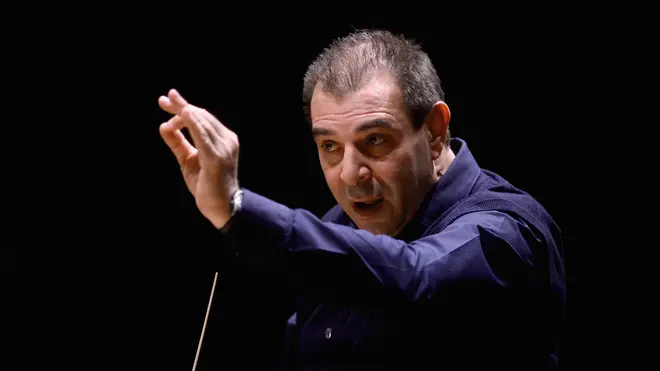Royal Concertgebouw Orchestra dismisses conductor Daniele Gatti
2 August 2018, 17:29 | Updated: 6 November 2018, 21:54

The Italian conductor has left the post of chief conductor for the prestigious Dutch orchestra after a wide-ranging investigation in The Washington Post revealed sexual misconduct allegations against him. In a statement Gatti denied all the allegations and said that he was "extremely surprised" by the orchestra's decision.
On 26 July Daniele Gatti was accused of sexual harassment by two singers in an article in The Washington Post.
Today, 2 August, the Royal Concertgebouw Orchestra announced that Gatti would be stepping down from the post of chief conductor, a role he has held since 2016.
In a statement posted on its website, the orchestra said:
"The Royal Concertgebouw Orchestra has terminated the cooperation with chief conductor Daniele Gatti with immediate effect.
"On 26 July, The Washington Post published an article in which Gatti was accused of inappropriate behavior. These accusations and Gatti’s reactions with this respect have caused a lot of commotion among both musicians and staff, as well as stakeholders both at home and abroad.
The statement went on to say: "This has irreparably damaged the relationship of trust between the orchestra and the chief conductor."
Assaults in dressing rooms. Groping during lessons. Classical musicians reveal a profession rife with harassment. @PeggyMcGlone and I spent months ferreting (some of) it out. https://t.co/vJxJVIQUGS
— Anne Midgette (@classicalbeat) July 26, 2018
In response to the Royal Concertgebouw Orchestra's decision to end their relationship with him, Gatti released a further statement through his lawyer, on 2 August, saying he was "extremely surprised" and that he "firmly denies all sorts of allegations".
Soprano Alicia Berneche told The Washington Post that while she was working at the Lyric Opera of Chicago’s Ryan Opera Center in 1996, the conductor invited her to his dressing room for a coaching session before forcing himself on her: “his hand on my rear end, and his tongue down my throat.”
Berneche said she had wanted to report his behaviour but that a friend had warned her not to, saying: “If you come forward, you will be fired, and he will continue.”
Another singer, soprano Jeanne-Michèle Charbonnet also made an allegation against the conductor. She told the paper that in 2000, while they were both working on a production of Wagner's The Flying Dutchman in Bologna in Italy the conductor had tried to force himself on her: “I pushed him off and ran out of the room.”
Gatti issued a statement on Friday 27 July that said: "To all the women I have met in my entire life, especial[ly] those who believe I did not treated [sic] them with the utmost respect and dignity they certainly deserve, I sincerely apologize from the bottom of my heart.
"Today and moving forward, I plan to focus much more on my behaviors and actions with all women. This includes women both young and old, to be sure no woman ever feels uncomfortable ever again, especially women that I work with in my profession in classical music. I am truly sorry."
Washington Post journalists Anne Midgette and Peggy McGlone say they spoke to 50 musicians who had been victims of misconduct, “ranging from sexual harassment to sexual assault, at every level from local teachers to international superstars. Opera singers spoke of attempted assaults in dressing rooms or in the wings during performances. Students described teachers inappropriately touching their bodies during lessons.”
The Incorporated Society of Musicians and the Musicians' Union recently launched a code of practice to "tackle and prevent bullying, harassment and discrimination in the music sector". If you've been affected by any of these issues, you can find out more here.


































